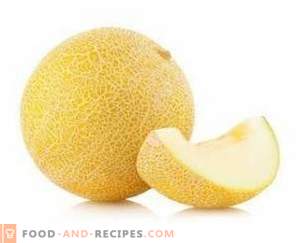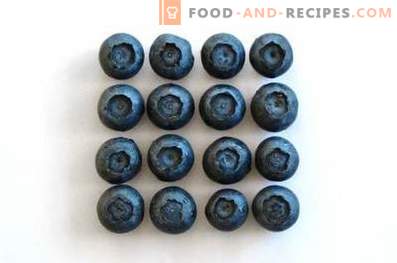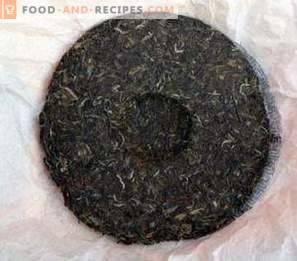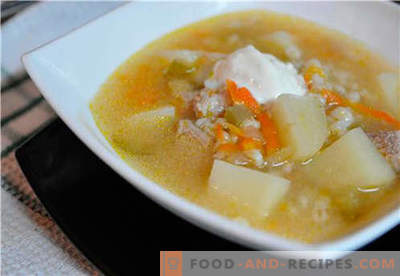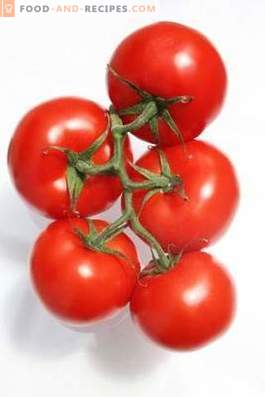
A tomato (tomato) is a vegetable crop belonging to the family of the nightshade (genus - nightshade). The homeland of representatives of this species is South America: on the territory of the continent and today you can find wild varieties of this plant. Tomato came to Europe in the second half of the XVI century. Initially, tomato plantations appeared in Portugal and Spain, and later in France, Italy and other European countries. Representatives of this species were introduced to Russia only in the 18th century.
Initially, tomatoes were considered not only inedible, but also poisonous. In most countries of the world, tomato was cultivated as an exotic ornamental plant. Vegetable and edible this culture began to be considered only thanks to the works of the Russian botanist Andrei Timofeevich Bolotov, who developed a method to achieve the full maturation of its fruits.
A tomato is a herbaceous plant with a well-developed root system of stem type, an erect branching stem, reaching two meters in height, and divided into large lobes with pinniferous, bright green leaves. Small yellow flowers of tomatoes collected in small brushes. The fruit of the plant - juicy berries, having a cylindrical or rounded shape and bright red, orange, pink, yellow, light green or white color. Tomatoes can be small (weighing no more than 50 g), medium (having a mass in the range of 50-100 g) or large (weighing more than 100 g).
Tomatoes are a unique food product with outstanding taste. Many national cuisines (for example, Italian cuisine) simply could not exist without this indispensable vegetable culture. Tomatoes are actively used in the preparation of salads, sauces, soups and juice, they are eaten raw, stewed, dried, fried and boiled, dried, canned and marinated.
Nutritional value of tomatoes and vitamins in the composition of their fruits
Tomatoes are distinguished by their excellent taste, diet and nutritional properties. As part of their pulp and juice there is a mass of substances necessary to maintain normal operation of all systems of the human body.
Nutritional value 100 g of tomatoes:
- 0, 59 g of proteins;
- 4, 19 g of carbohydrates;
- 0, 17 g of fat;
- 0, 79 g dietary fiber;
- 0, 48 g of organic acids;
- 3, 36 g of monosaccharides and disaccharides;
- 93, 44 g of water;
- 0, 68 g of ash;
- 0, 29 g of starch.
Vitamins per 100 g of tomatoes:
- 0, 598 mg of niacin equivalent;
- 0, 396 mg of vitamin E;
- 6,668 mg of choline;
- 0.057 mg of thiamine (B1);
- 0, 294 mg of vitamin B5 (pantothenic acid);
- 0, 487 mg of vitamin PP;
- 7, 844 mcg of phylloquinone (K);
- 0.093 mg of pyridoxine (B6);
- 1, 198 mg beta-carotene;
- 199, 486 μg of vitamin A;
- 0, 038 mg of riboflavin (B2);
- 11, 224 mcg of vitamin B9 (folic acid);
- 1, 912 μg of biotin (H);
- 23, 949 mg of vitamin C.
Energy value of tomatoes
Tomatoes are vegetables with low energy value. Often you can hear how they are called a product with a negative caloric content. This means that the energy value of the fruits of this plant only slightly covers the energy costs that the body incurs to process them. Due to the low calorie content, tomatoes are often included in the menu of diets aimed at effective weight loss.
- Caloric value of 100 g of tomatoes - 19, 8 kcal.
- The calorie content of one tomato of medium size (85 g) is 16, 8 kcal.
- The calorie content of cherry tomatoes is 14 kcal.
- Calories of pickled tomatoes - 16, 1 kcal.
- Caloric content of ketchup - 79, 8 kcal.
- The calorie content of salted tomatoes is 13, 7 kcal.
- Calorie content of tomato juice - 22, 1 kcal.
- Calorie content of tomato paste - 91, 4 kcal.
- Calories of dried tomatoes - 256, 9 kcal.
- Calories of canned tomatoes - 20, 6 kcal.
Macro and trace elements in the composition of tomatoes
Tomato pulp is a rich source of beneficial micro and macronutrients for the human body.
Macroelements per 100 g of tomatoes:
- 11, 984 mg S (sulfur);
- 13, 563 mg Ca (calcium);
- 19, 578 mg Mg (magnesium);
- 26, 112 mg of P (phosphorus);
- 39, 989 mg of Na (sodium);
- 57, 189 mg Cl (chlorine);
- 288, 976 mg K (potassium).
Trace elements per 100 g of tomatoes:
- 1, 989 µg I (iodine);
- 6,974 μg Mo (molybdenum);
- 0, 139 mg Mn (manganese);
- 152, 213 μg of Rb (rubidium);
- 0, 361 mkg Se (selenium);
- 114.567 mcg B (boron);
- 0, 897 mg of Fe (iron);
- 5, 947 µg Co (cobalt);
- 4, 976 mcg Cr (chromium);
- 109, 817 µg Cu (copper);
- 12, 933 µg Ni (nickel);
- 19, 676 µg F (fluorine);
- 0, 197 mg Zn (zinc).
Useful properties of tomatoes
- Tomatoes are vegetables with a high content of dietary fiber. Regular consumption of them in food contributes to the normalization of the digestive tract, improving peristalsis, excretion of toxins, poisons, toxins and other harmful substances from the body. Tomatoes and tomato juice with pulp are an effective and safe remedy for constipation.
- Substances contained in the pulp of tomatoes contribute to a smooth decrease in blood pressure. Regular consumption of the fruits of this culture in food can prevent the development of hypertension.
- Tomato juice is an effective remedy for gastritis occurring against the background of low acidity of gastric juice. In order to get rid of the manifestations of this pathology, is it enough to drink? glasses of this drink before each meal.
- Tomatoes contain compounds capable of thinning blood. For this reason, dishes from the fruit of this plant are useful for people with diseases involving the formation of blood clots.
- Tomatoes are a rich source of substances that favorably affect the functioning of the urinary and reproductive systems in men. In a series of studies, it was found that this compound significantly reduces the risk of developing prostatitis and prostate cancer. In addition, the regular inclusion of tomatoes in the diet increases the potency of the stronger sex.
- Tomatoes pulp contains lycopene - a substance that reduces the likelihood of developing heart disease. In addition, this pigment has an antitumor effect.
- There is a strongest oncoprotector in the composition of well ripened tomatoes, called alpha-tomato. The specified connection has the ability to destroy already formed cancer cells.
- Tomatoes are a rich source of the amino acid tryptophan, from which the so-called “happiness hormone” (serotonin) is produced in the human body. This hormone has a beneficial effect on the gastrointestinal tract and nervous system, normalizes blood clotting, participates in the emergence of pain impulse from the inflammatory focus or injury, helps to avoid depression and sudden mood swings, migraine attacks, prevent the development of a number of neurological and mental diseases.
- One small portion of lettuce with tomatoes or half a glass of tomato juice per day significantly slows the aging process of the skin, protects the skin from the adverse effects of UV radiation. In folk medicine, fresh fruit pulp is used as an external remedy that accelerates the healing of burns, ulcers and wounds.
- Substances present in the pulp of tomatoes have anti-inflammatory properties. That is why nutritionists advise people with diagnosed inflammatory diseases of internal organs to supplement their diet with foods from their fruits as often as possible.
- Fresh juice or ripe tomato fruits are an excellent remedy for anemia. Individuals diagnosed with anemia are recommended to eat 3-4 small tomatoes daily or drink 150 ml of tomato juice.
- It has been established that carotenoids present in the composition of tomatoes protect the visual apparatus from light-induced damage, slow down peroxidation processes in the lens of the eye, reduce the likelihood of developing cataracts, and help preserve flawless vision to extreme old age.
- Pectins present in the pulp of tomatoes, prevent the formation of atherosclerotic plaques in the lumen of blood vessels, contribute to the excretion of excess cholesterol.
- Tomatoes and freshly squeezed juice from them contribute to the activation of metabolic processes. The substances contained in them help to improve brain activity and preserve a good memory up to a very old age.
- Regular consumption of tomatoes in food helps to improve the overall tone and physical endurance of the body, get rid of chronic fatigue and cope with loss of strength.
Contraindications to the consumption of tomatoes
- Tomatoes are a product with a high concentration of organic acids. This means that too frequent consumption of dishes prepared on their basis can seriously harm people suffering from cholelithiasis, arthritis, kidney diseases, gastritis with high acidity of gastric juice, pancreatitis, gout and a stomach ulcer.
- Persons suffering from hypertension and other cardiological diseases are contraindicated in eating canned (salted or pickled) tomatoes.
- Tomatoes are recognized as one of the most common food allergens. For this reason, individuals prone to the development of food allergic reactions should exercise caution when incorporating them into the daily diet.
- According to nutritionists, tomatoes are incompatible with products such as fish, bread, meat, and eggs. In addition, experts recommend abandoning the consumption of tomatoes grown out of season or plucked from the branches with green.



